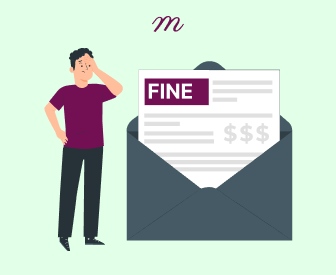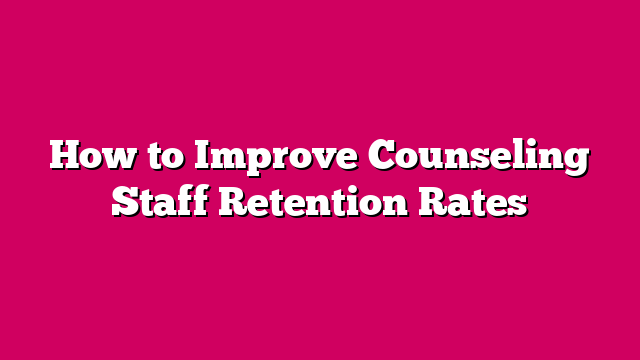Have your progress notes written for you automatically
Starting a private practice involves handling several administrative tasks. This can seem daunting if you’re just starting your practice. You might feel overwhelmed especially when you're focused on client care. However, one of the most crucial decisions you'll make in your practice is deciding your business structure. You need to be able to efficiently manage your financial and legal responsibilities.
In this post, we’ll break down the key factors to consider when choosing LLC for private practice counseling. You will also see the key steps to set up LLC for a successful private practice. We have provided the benefits and drawbacks so you can make an informed decision that aligns with your practice goals.
What Does LLC Mean?
A Limited Liability Company (LLC) is a business structure that allows you to become a separate entity from your private practice. It is an entity that offers more legal protection than a sole proprietorship. It protects you from getting lawsuits and paying your company’s debts.
This structure involves the pass-through taxation of a sole proprietorship or partnership. You can report the income earned at your practice and expenses on your tax return. The tax will be added to your income and taxed accordingly. While most LLCs are taxed as pass-through entities, there are other structures like S Corporations and C Corporations. Each of them comes with its own tax implications.
For instance, S Corp offers limited liability, and the pass-through taxation, it also has the potential to reduce self-employment taxes. On the other hand, C Corp is a separate legal entity, but it is more complex to run. In C Corp, profits are taxed at the corporate level so, the dividends paid to shareholders are taxed again as personal income. Although, the corporation continues to exist even if ownership changes.
Advantages of LLC for Private Practice Counseling
LLC might be a good option when opening a counseling practice as it has different benefits to offer you. They include:
Individual Liability Protection
LLC can protect your finances and assets such as your car, and home from the business. The mental health practitioner is not affected by the legal consequences of his private practice. In a case where your client encounters harm at your company, your private practice gets sued and not you. Limited liability protects you from lawsuits and your assets are safe.
Flexible Tax Options
LLCs have different options on how to tax a professional practice for counselors. With the flexible options, owners of an LLC can choose to be taxed as a sole proprietorship, partnership, or S corporation. The profits and expenses of your practice pass through your tax returns which allows you to avoid double taxation on your income.
Easy Transfer of Ownership
It is very easy to transfer ownership and membership interest, and it has no restrictions on the number of members. It makes it easy to attract investors and members when you want to grow or expand your practice.
Less Regulation
An LLC is very simple and flexible to start compared to other business structures. There are fewer regulations and fewer formal requirements needed to set it up.
Credibility
When you register your private practice as an LLC, it can promote the credibility of your private practice. Clients and partners can see your company as more professional and well-established. It shows you are dedicated and different from competitors who are not registered.
Disadvantages of LLC for Private Practice Counseling
It costs more to set up and maintain an LLC unlike a sole proprietorship and partnership.
Transferring ownership in a limited liability company can be more difficult than in a corporation. In corporations, you can sell the shares of stock to someone else to increase ownership. With LLC, new members cannot be added except if the members approve. The ease of transfer can vary depending on the LLC's operating agreement and state laws.
LLCs have more recurring requirements than sole proprietorship and partnerships.
It takes time and requires you to register your company with the state and requires extra work. You have to first check if your state will require you to form a professional limited liability corporation (PLLC).
Is LLC the Right Choice for your Private Counseling Practice?
Considering the many benefits that LLC has to offer, it should be noted that it is not the only option. The following are factors to consider before making LLC an option when starting a counseling practice:
Sole Proprietorship Vs LLC
A sole proprietorship lacks the legal protection LLC offers. However, sole proprietorship is easier to set up. It is perfect for starting a business and if your goal is to keep it simple. Do not forget that you will be responsible for all the corporate debts and lawsuits.
Partnership Vs LLC
If you are a therapist starting your counseling private practice with one or more partners, an LLC might provide you with a greater structure and protection than a partnership. Members of a partnership are responsible for the liabilities and obligations of the company. An LLC on the other hand is a structure that will protect your assets.
Corporation Vs LLC
Corporations can also offer limited liability protection but might be impacted by additional regulations and double taxation. An LLC is a popular option for private practices because it offers similar protection with fewer requirements and tax flexibility.
Professional Limited Liability Corporation (PLLC)
This is a business structure similar to LLC but is created only for licensed professionals. Some states require some professions such as counseling practices to set up PLLC instead of an LLC. Check the regulations in your state to find out if it applies to you.
In addition to deciding whether you need to choose an LLC for your private practice, it is best to consider having good practice management software. You can improve your practice's profitability and productivity by using technologies like Mentalyc. It will guarantee your private practice's long-term growth and success.
Other factors to consider include costs, state laws, and regulations. You can compare the costs with other business structures to help with your decision. Also, be sure to check out for the private practice counseling requirements and regulations that apply to your state.
How To Set Up an LLC for Private Practice Counseling
It is important to know how to go about setting up an LLC for your private practice counseling. However, the steps to set up an LLC for your private practice counseling depend on your state region. These essential general steps below will help you set up an LLC for your private practice:
Pick a Desired Name for your Limited Liability Company (LLC)
Your choice of name has to be unique and distinct from other companies' names registered in your state. You can check your state’s LLC requirements to know if your desired name is available. There are different secretary of state websites for different states where you can search and review name requirements.
Select a Registered Agent
A registered agent is an agent who has been authorized to receive legal documents on your behalf. You can appoint another member of your LLC or a professional registered agent service, or you receive the documents yourself.
File the Articles of Organization
To be legally recognized as an LLC, you have to file the articles of organization with your state. The form will include the name of your company, the members, and its address. Based on the state you are located, you might need to pay a filing fee.
Prepare an Operating Agreement
An operating agreement is a document that describes the ownership and management practices of your LLC. This is useful for companies with numerous owners to prevent misunderstandings among the members. The operating agreement includes:
Each member’s specified percentage of ownership
Voting rights and obligations
Members’ power and duties
Rules regarding the transfer of members’ ownership
Choose Your LLC Structure
You can choose between a member-managed or manager-managed LLC. All members can participate in the process of decision-making when running a member-managed LLC. While in a manager-managed LLC, management responsibilities are delegated to one or more managers.
Get the Necessary Licenses and Permits
The licenses you need as a mental health practitioner include your business license, and health department permits. You might need more licenses depending on your state and local government requirements. Check for the required licenses needed at your state or city business offices.
Get an EIN
Employer Identification Number(EIN) is required for federal tax purposes for your employees. It is also required when you want to open bank accounts for your private practice. Some financial institutions prefer employer identification numbers to social security numbers.
It is a very fast and easy process to obtain your employer identification number. All you have to do is fill out a form on the IRS website. You can print out the letter containing your EIN from the website or you get it from your email.
Open a Business Account For Your Private Practice
It is helpful to have a separate account for your company and personal expenses. It allows easy decision-making on financial issues about your company.
Seek Legal Counsel
Consulting with an attorney who specializes in business law can help ensure that your LLC is formed correctly. It also ensures compliance with all state regulations. An attorney can also provide guidance on drafting your operating agreement and addressing potential legal issues.
Conclusion
As a mental health professional, it is important to understand the impact of LLC on the professional, financial, and operations of your private practice. If growing your practice, protecting your assets, and fine-tuning your professionalism is your priority, LLC is the right choice for you. But, there are advantages as well as disadvantages to choosing an LLC or any other business structure for your private practice. Endeavour to make adequate research, and consult a legal and financial expert. This will help you decide on the best business structure for your private practice.
Frequently Asked Questions
Are LLCs Recognized For Counseling Practices By All States?
Most states accept mental health practitioners to form an LLC for their counseling practices. However, it is important to know if the laws and regulations in your state permit this operation.
As a mental health professional in California for example, you are not allowed to start an LLC for your practice. You can set up your private practice as a sole proprietorship or professional corporation. You have to ensure that you search to know what to consider before starting a private practice in California.
Can I Form An LLC By Myself?
You can form an LLC by yourself, and if you have one or more partners, you can form a multi-member LLC. The benefits apply to both individual ownership and partnerships.
How Much Does It Cost To Form An LLC?
The cost to set up an LLC as a therapist is based on your location. You have to pay for the filing fees and annual fees to maintain your company. Some states might charge you additional compliance fees or publication fees.
Do I Need Liability Insurance If I Have An LLC For Private Counseling Practice?
Yes, liability insurance is still needed despite having an LLC. Liability insurance is also known as malpractice insurance. It will provide you additional protection against lawsuits that might involve your counseling practices.
Is it Possible to Change a Sole Proprietorship Into An LLC?
Yes, it is possible to change from a sole proprietorship to an LLC. All you have to do is transfer your company’s finances and operations to the new LLC. Also, you have to ensure you follow all your state’s regulations.










